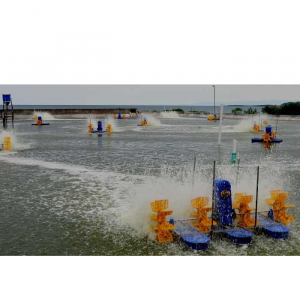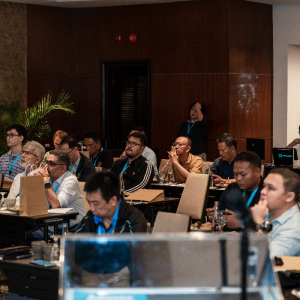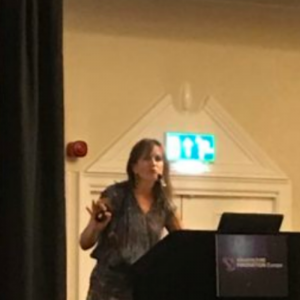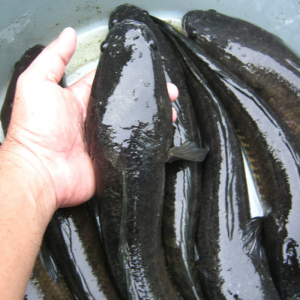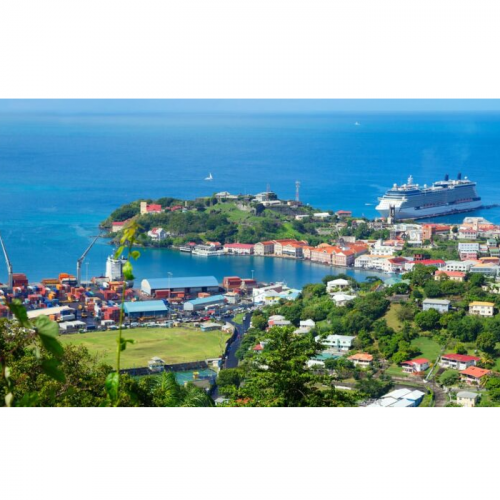
Soren Dawody’s Sustainable Aquaculture is Helping Shape Grenada’s Economy
| Wed, 30 Sep 2020 - 13:47
Nestled in the picturesque Eastern Caribbean Sea, Grenada, often called “the Spice Isle,” is known for its dramatic scenery, vibrant tourist economy, and bustling export trade in aromatic spices. Since the economic catastrophe of Hurricane Ivan in 2004, the Government of Grenada has worked to shore up export-oriented institutions and pursue deeper integration with other Eastern Caribbean states.
Unfortunately, despite registering a 3.1% bump in GDP for 2019, Grenada’s economy remains deeply reliant on international travel and tourism. Thus, like many other countries with tourism-based economies, Grenada has been hit particularly hard by the COVID-19 pandemic. While the government has floated the idea of expanding the exportable spice trade to offset the tourism industry’s losses, the fact remains that island-based spice and cocoa plantations in the Caribbean remain enormously vulnerable to regional hurricanes and fluctuating rainfall patterns.
Despite the breakneck pace of COVID-19 vaccine development, the broad consensus amongst economists and epidemiologists is that some form of travel restrictions will remain in force through the rest of 2020 and likely into early 2021. Faced with a protracted hiatus in overseas visitors, many tourism-dependent economies have had no other option but to reshape their industry base and restructure their growth outlook. In Grenada, this process has already been impeded by the country’s relatively weak business environment and low-skill labor market.
Also read: Using Supplemental Amino Acids to Reduce Dietary Protein Levels of Nile Tilapia Gives Economic and Environmental Benefits
With its principal industry lying dormant and its broader economy stuck in limbo, Grenada is now having difficulty attracting foreign direct investment (FDI). Absent a sustained inflow of FDI, Grenada risks being locked out of several much-needed growth modifiers, including infrastructure modernization and expansion, accessible commercial borrowing, and elevated entrepreneurial activity.
To combat Grenada’s ongoing drought in foreign capital, a small group of investors and entrepreneurs are leveraging private-public joint ventures with the Government of Grenada to boost FDI via the country’s Citizenship by Investment program. One such venture is Grenada Sustainable Aquaculture Ltd (GSA), an environmentally-conscious and highly scalable initiative to diversify Grenada’s economy, upskill its job market, and boost its lagging GDP. Since it was endorsed as a Citizenship by Investment Project, GSA has had a 100% success rate in its investors receiving citizenship in Grenada.
GSA is the brainchild of Soren Dawody, a veteran entrepreneur with extensive experience in real estate investments and development projects. A strident advocate for economic justice, Dawody has spent years working alongside governmental and non-governmental organizations in some of the world’s least developed economies. By leveraging joint ventures between the public and private sector, Dawody has helped stimulate economic development on the local level.
Also read: Sustainable Aquaculture to Feed The World
In the case of Grenada, Dawody has identified an economy that is in dire need of diversified, joint venture enterprise. Approved and endorsed by the Government of Grenada, GSA’s flagship initiative is the establishment of a sustainable aquaculture farm in the heart of Grenada. Utilizing modern, zero-water-exchange production systems, GSA’s aquaculture is designed to synergize with local fishing operations without posing any measurable detriment to the surrounding environment.
According to GSA projections, once their aquaculture is equipped with mature fish stocks, it’s per annum production will be capable of scaling to more than 8,000 tons of high-grade shrimp and fish products. Once processed, these products will be available for export to distributors in the lucrative US and South American seafood import markets. Of course, depending on demand within Grenada, some portion of GSA’s shrimp and fish products will inevitably be sold to local markets, resorts, and restaurants. While not as profitable as a pure export model, GSA’s hybrid distribution plan will do far more to help the people of Grenada, improving regional food security and fueling competition across the Caribbean’s nascent aquaculture sector.
Even accounting for local consumption, GSA predicts that their flagship aquaculture farm will be cash flow positive within three years of operation. Once its cash flow transition is complete, GSA’s offshore farm is expected to singlehandedly account for a 9% bump in Grenada’s GDP. Moreover, as a premium fishery project, the construction and management of the GSA aquaculture will create over 400 long-term local jobs.
Also read: Study Backs Offshore Aquaculture Expansion
Make no mistake, Dawody’s aquaculture initiative isn’t envisioned as something that will topple tourism and real estate as the mainstays of Grenada’s economy. Instead, Dawody hopes that his fish and shrimp farm, with its cutting edge aquaculture design and ultra-modern technical equipment, will stimulate substantive wage growth and reduce the prevalence of manual labor in the Grenadian economy. In addition to its more complex construction requirements, an offshore aquaculture will require a range of dedicated technical roles, with specializations across everything from marine studies and industrial information technology to climate science and aqua-farming operations.
Soren Dawody is a prime example of the transformative power of altruistic investment. Joint venture initiatives like GSA mean countries can be well-positioned to deliver new economic opportunities and cushion losses to principal economic industries.
Source: London Post













